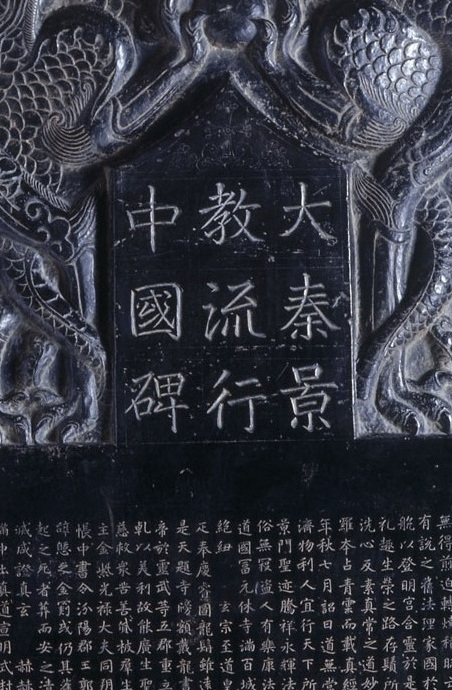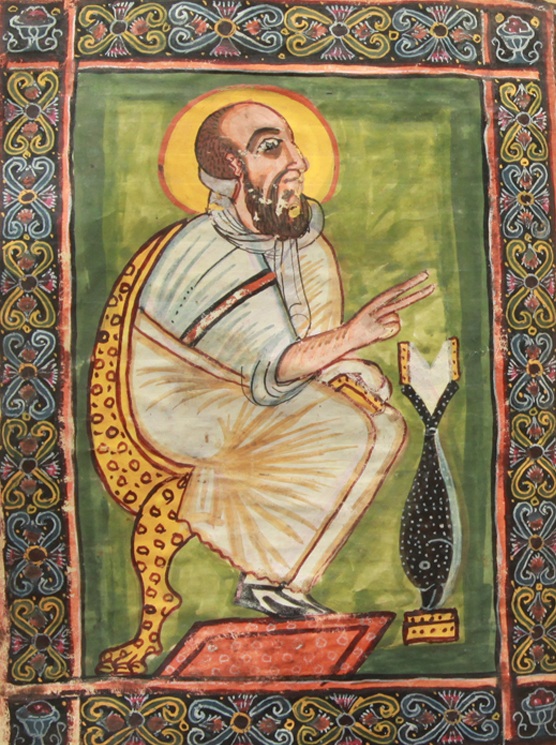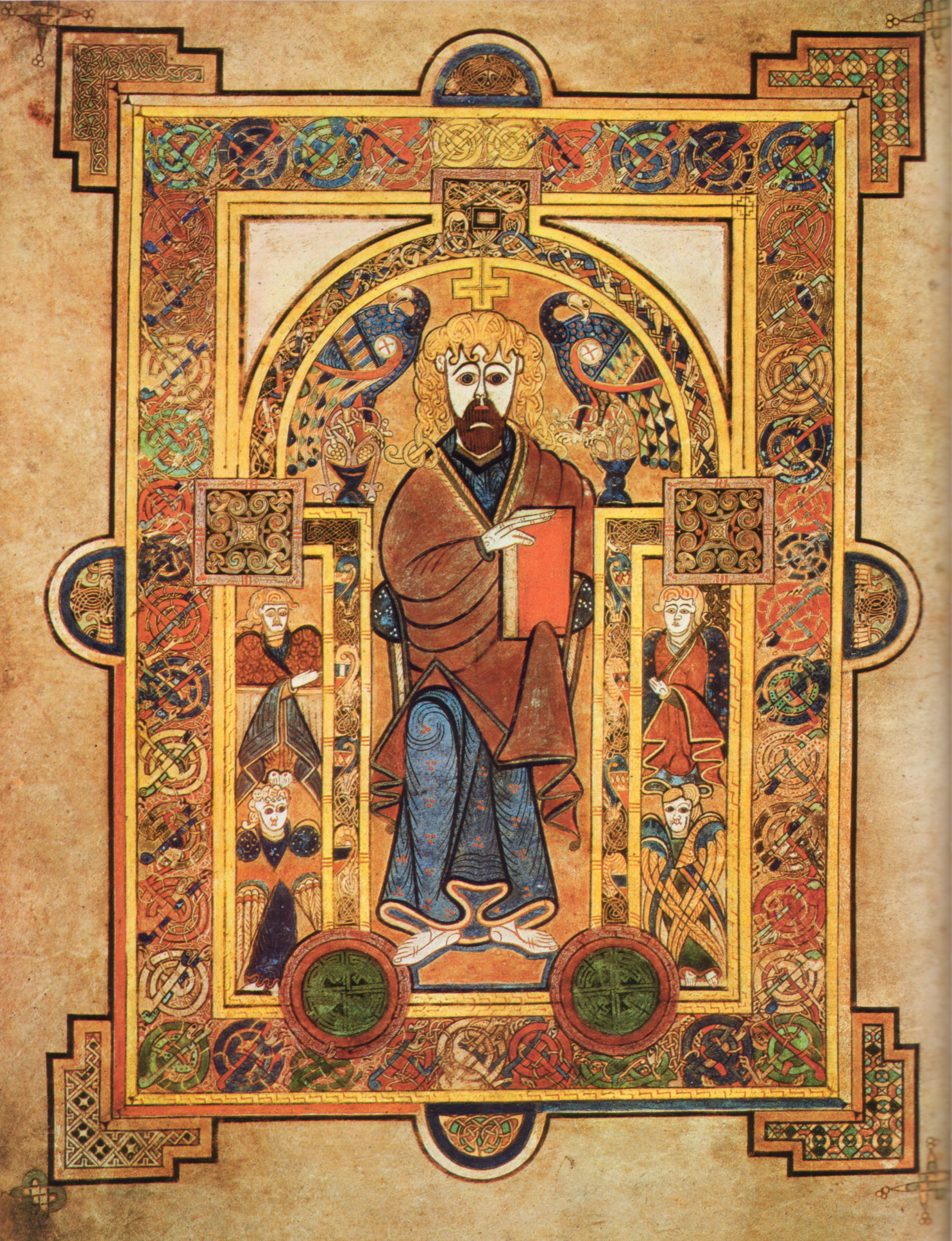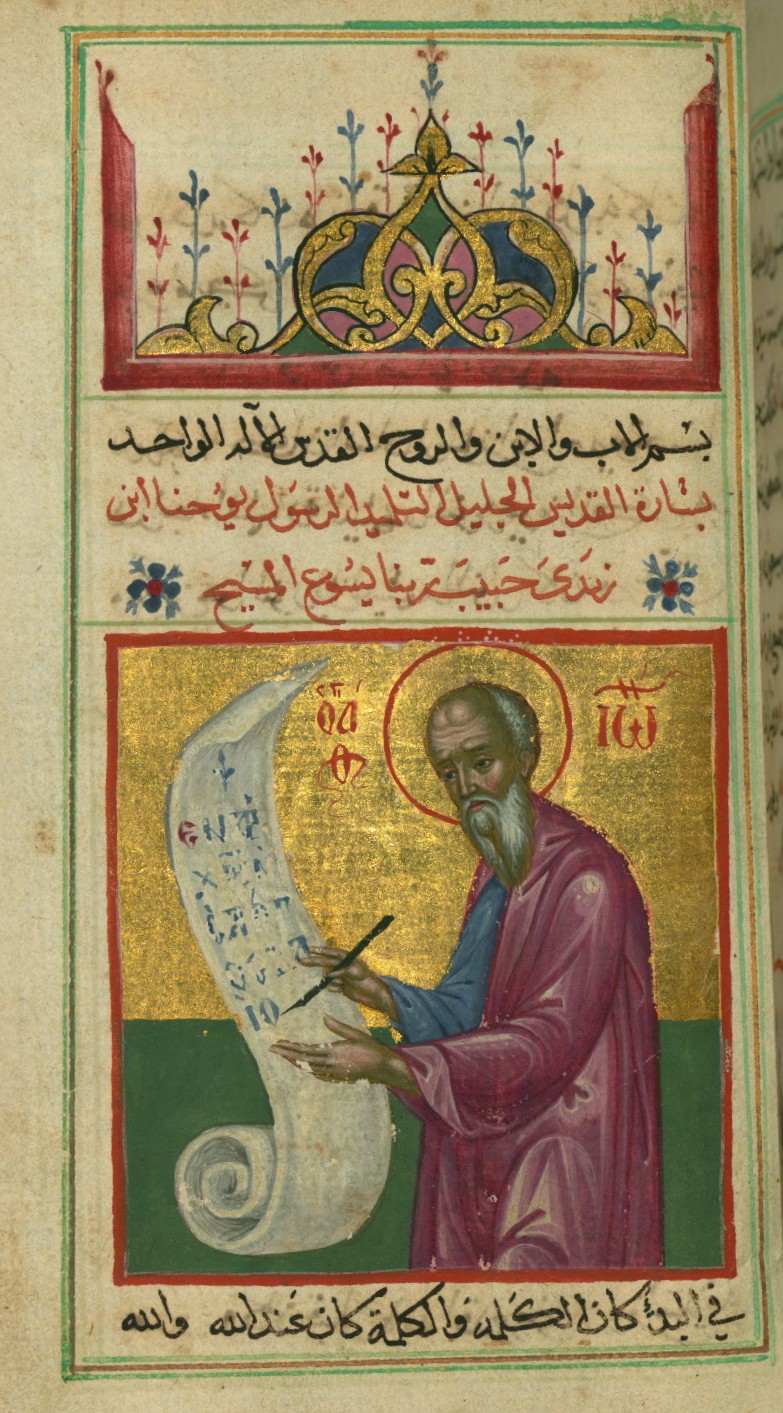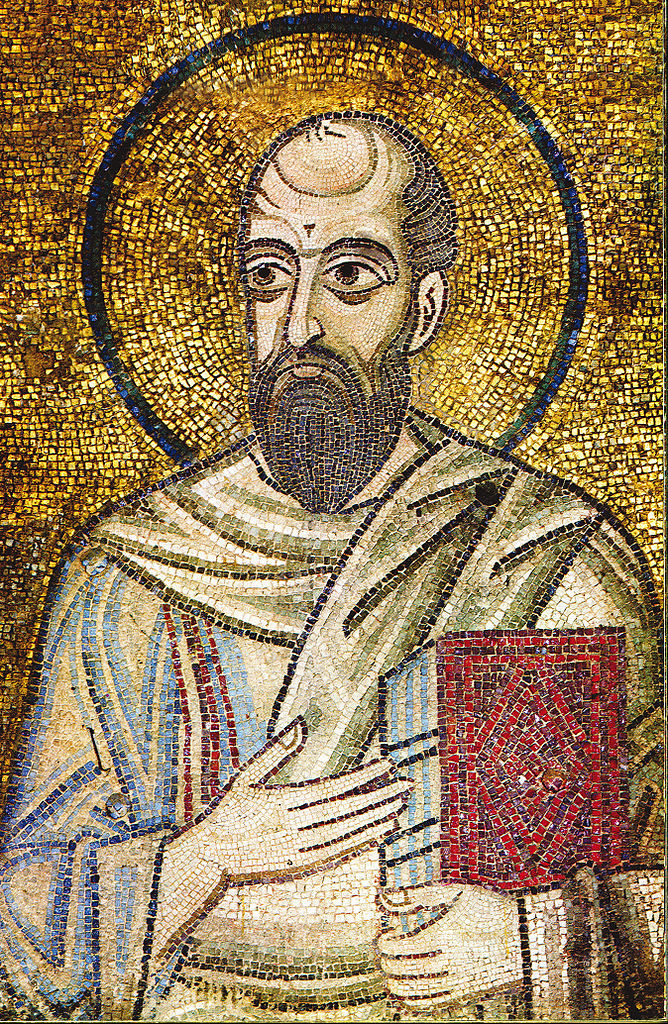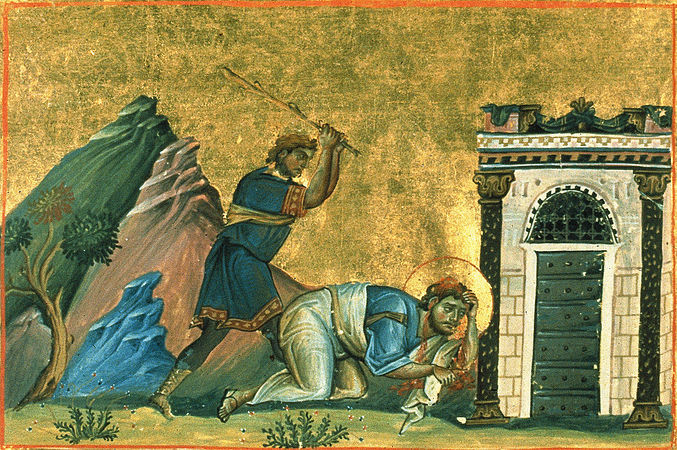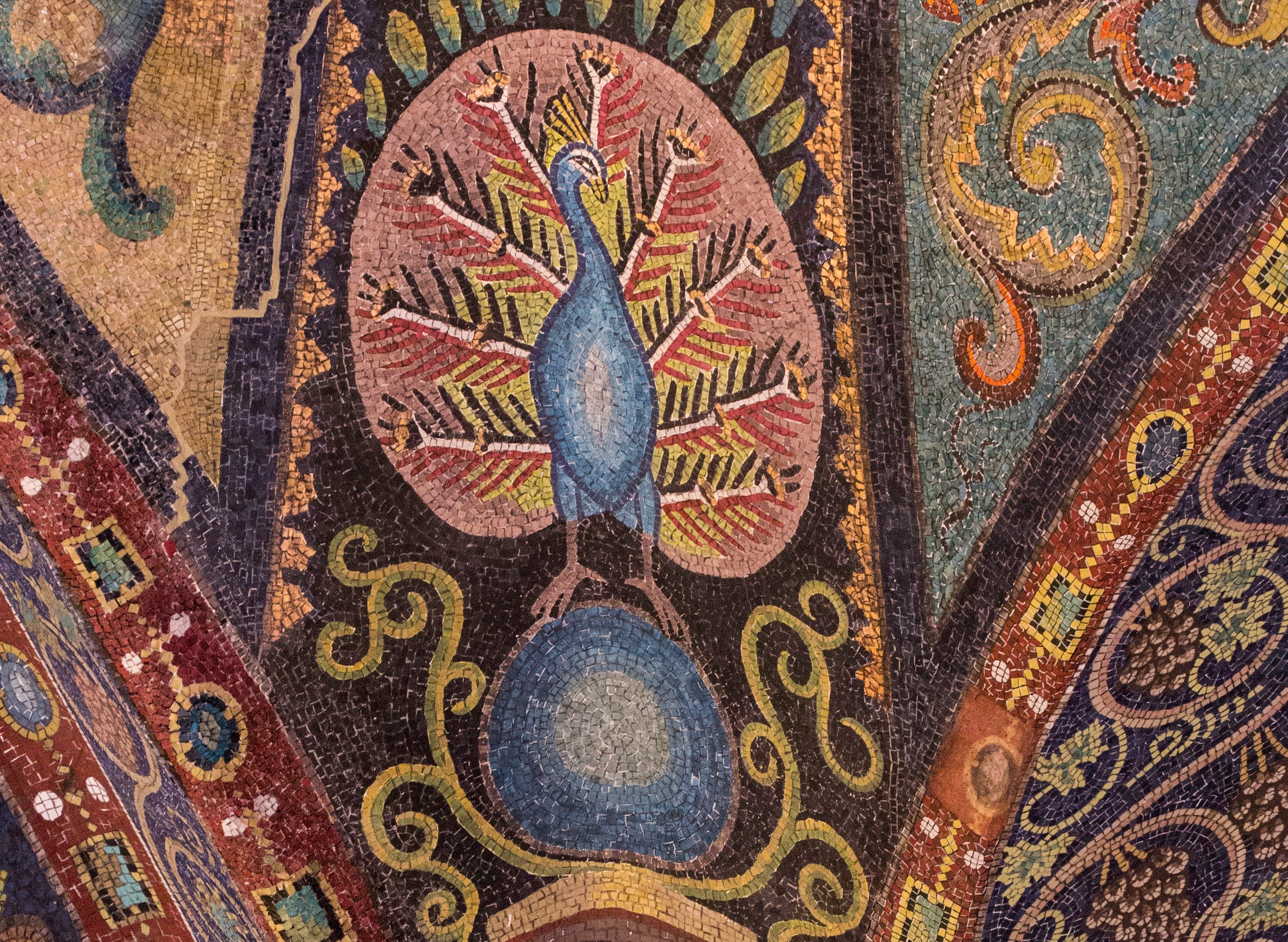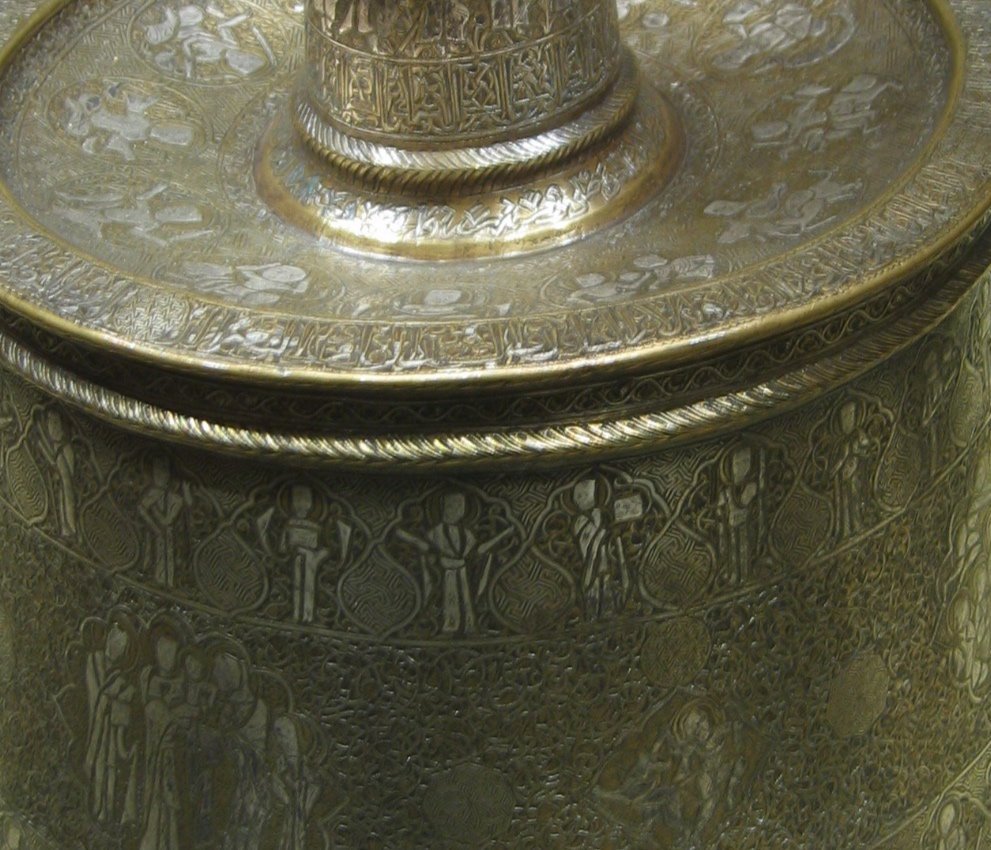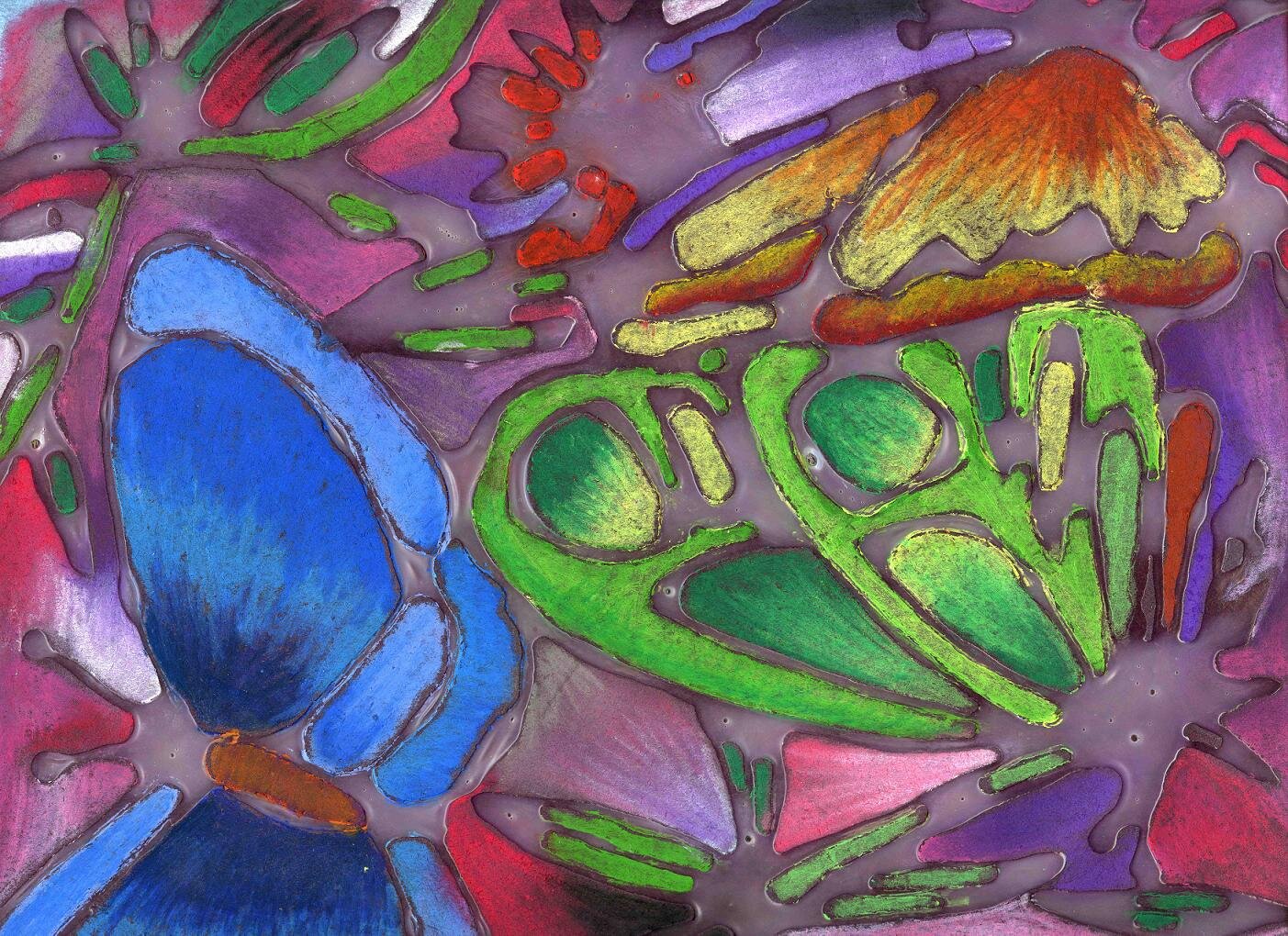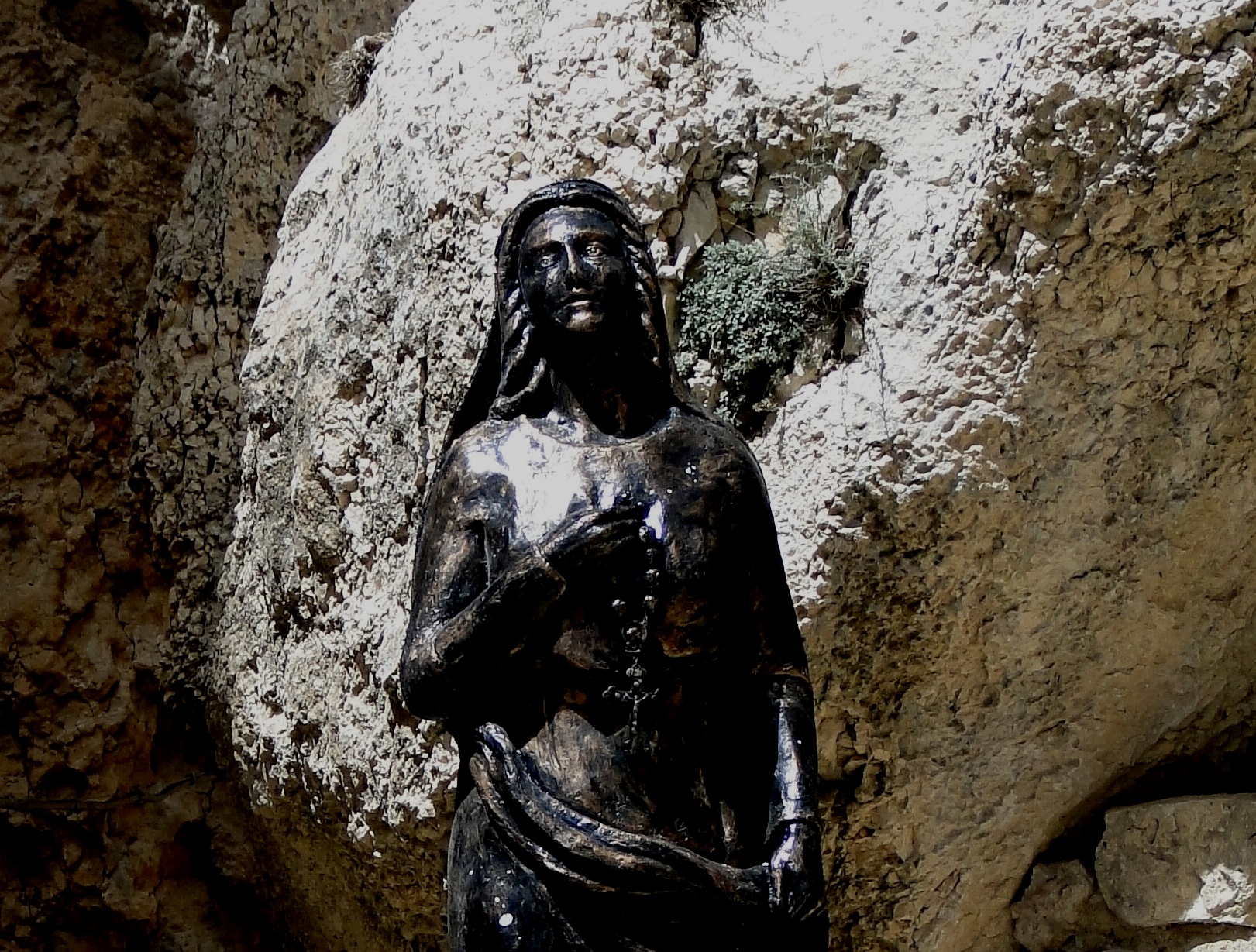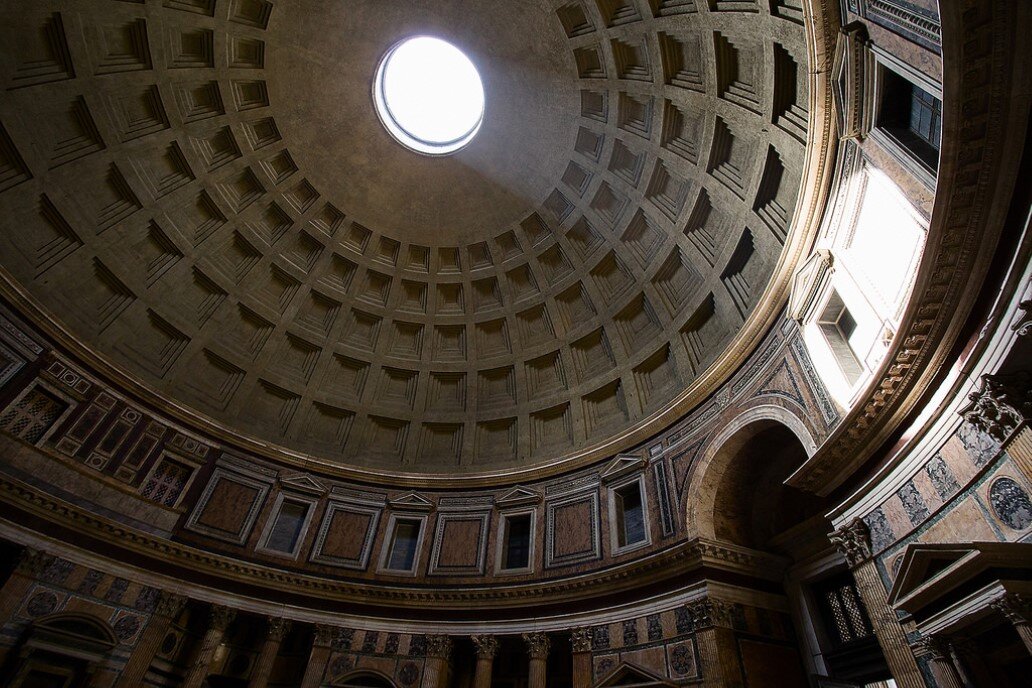Luke - Acts
Bible Studies, Messages, Papers
Photograph: Illuminated manuscripts of the Irish Book of Kells, believed to date to circa 800 AD, widely regarded to be Ireland's finest national treasure. Pictured are the first page of the Gospel of Luke (left), and a portrait of Christ enthroned (right). The Book of Kells is a Latin translation of the Four Gospels with various prefaces and tables. It takes its name from the Abbey of Kells, which was its home for centuries. Photo credit: (left and right) Treasures of Irish Art | Public Domain, Wikimedia Commons.
Below are messages, small group leader notes, and exegetical notes on the writings of Luke: The Gospel of Luke and The Acts of the Apostles.
Slides to a presentation Mako Nagasawa gave to a class at Gordon-Conwell Theological Seminary in February 2024. Here is the English text of the treatise, which Ambrose wrote in 389. See video recording. Ambrose uses King Ahab as a case study of greed when he seized Naboth’s vineyard, in 1 Kings 21. This presentation relates to the Genesis creation story because Ambrose structures it around Genesis 1. He says that God gave all humans a shared dominion over the creation. In Christ, God gives us dominion, in principle, over sin. Covetousness, therefore, is a double problem. It interferes with the shared dominion over the creation, and it causes us to fail in exercising proper Christ-centered dominion over the sin in ourselves. Ambrose shows that Ahab became cruel, like the wild dogs that eventually fed off his dead, unburied body, as in 2 Peter 2:19 - 22. Ambrose also draws upon Matthew 6:19 - 24 because of how moths and rust share in our physical goods whereas God shares in the development of our moral goodness. Ambrose draws as well on Luke 12:13 - 34 because the greedy tear down barns/granaries and build bigger ones, finding more pleasure in the rising price of grain, not its widespread availability. A few slides refer to Ambrose’s understanding of the human being as a human becoming, Jesus’ work of atonement as a medical substitution healing human nature for us and inviting us to share in him, the pressing issue being human desires and not deservingness per se, and hell as the love of God but experienced by those who have become addicted to sin.
-
Luke 1:39 - 45 God Remembers the Forgotten. For Neighborhood Church of Dorchester, Dec 19, 2021. Advent Week 4: Love. Also involving Micah 5:2 - 5.
Luke 2:1 - 20 Why is God’s Love the Baby Jesus? For Neighborhood Church of Dorchester, Dec 18, 2022. Advent Week 4: Love. A creative piece of Mary and Joseph, read aloud as a story.
Luke 3:1 - 20 Get Ready to Meet the King. For Austin Korean Presbyterian Church, Jan 12, 2018. Message 1 of a college group retreat.
Luke 5:1 - 11 Jesus Makes Us Kingdom Builders
Luke 5:12 - 16 The Touch of Jesus
Luke 6:1 - 11 Jesus Completes Us
Luke 6:27 - 36 Jesus' Radical Ethics: Generosity, not Hoarding
Luke 7:1 - 10 The Power of Jesus’ Word
Luke 8:26 - 39 Listening to Too Many Voices
Luke 8:40 - 56 A Tale of Two Daughters
Luke 9:51 - 62 Jesus First!
Luke 11:1 - 13 The Father's Eagerness to Answer Our Prayers
Luke 11:1 - 13 How the Father Gives. For Boston College Asian Christian Fellowship, Jan 2015. Message 3 for Winter Retreat.
Luke 12:13 - 34 Kingdom Significance, not Security
Luke 13:17 - 21 The Kingdom You No Longer Want (and ppts) (Neighborhood Church of Dorchester, Aug 13, 2017) given one day after the white supremacist march in Charlottesville, Virginia
Luke 14:1 - 11 This Party Isn't About You
Luke 14:12 - 14 The Importance of Being Inclusive
Luke 14:15 - 35 The Party You Don't Want to Miss
Luke 15:1 - 10 Rejoicing, not Grumbling, at Outreach
Luke 15:11 - 32 A Tale of Two Sons
Luke 15:11 - 32 How the Father Looks. For Boston College Asian Christian Fellowship, Jan 2015. Message 1 for Winter Retreat.
Luke 19:1 - 10 Racism, Wealth, and Power
Luke 24:13 - 53 Tell the Jesus Story
Acts 3:1 - 10 What To Do With a Harvard Education
Acts 3:11 - 4:12 A Resurrected Jesus in the Midst of Dead Heroes
Acts 10 - 11 The Outreach to the Gentiles Begins
Acts 17:15 - 34 The God People Have Already Experienced
Acts 17:15 - 34 The Engagement of Stories
Acts 17:15 - 34 The Rehumanization of Humanity
Acts 19:1 - 41 The Gospel Divides Ephesus
Thematic Study The Holy Spirit and Speech: Having Something to Say (ppt)
Thematic Study The Theme of Eating: Return to the Banquet Table
-
Luke 3:1 - 20 Prepare to Meet the King
Luke 3:21 - 4:13 Jesus the New Human Being
Luke 4:14 - 30 The First Synagogue Rejection: Enemies?
Luke 4:31 - 44 The Second Synagogue Rejection: Others?
Luke 4:14 - 44 Two Ways to Reject Jesus
Luke 5:1 - 16 The Two Who Fell at Jesus' Feet
Luke 5:17 - 32 The Two Who Rose at Jesus' Call
Luke 5:27 - 39 The Two Responses to Jesus' Healing Humanity
Luke 6:1 - 11 The Two Signs that Jesus Completes Humanity
Luke 6:12 - 36 Jesus' Definition of Blessedness: Loving Others
Luke 6:37 - 49 Jesus' Definition of Blessedness: Healing, not Judging
Luke 7:1 - 17 The Power of Jesus' Word and the Two Who Escaped Death
Luke 7:18 - 35 Two Responses to Jesus' Kingdom
Luke 7:36 - 50 The Two Party Hosts: Two Responses to Jesus' Forgiveness
Luke 8:1 - 21 What Type of Heart Do You Have?
Luke 8:22 - 25 Jesus Crosses the Sea, Calms the Storm
Luke 8:26 - 39 The Liberation of the Demoniac: Listening to Too Many Voices
Luke 8:40 - 56 A Tale of Two Daughters
Luke 9:1 - 17 A Taste of Kingdom Mission and Responsibility
Luke 9:18 - 50 Who Do You Say Jesus Is?
Luke 9:51 - 62 Jesus Recruits for the Second Sending
Luke 10:1 - 24 The Mission of the Seventy
Luke 10:25 - 42 Jesus' Redefining of Loving Neighbor, Loving God
Luke 10:25 - 37 Jesus' Path to Eternal Life
Luke 10:38 - 42 A Tale of Two Sisters
Luke 11:1 - 13 The Prayers God Answers, Part 1: For Others and for the Spirit
Luke 11:14 - 32 How Jesus Authenticates Himself
Luke 11:33 - 54 Jesus Claims Your Whole Person, Inside and Out
Luke 12:1 - 12 The Dangers of Hypocrisy
Luke 12:13 - 34 Jesus' Call to Give Generously
Luke 12:35 - 53 The Coming of the King to His City
Luke 12:54 - 13:9 The City That Resists its King
Luke 13:10 - 35 The Kingdom You No Longer Like, the Capital You'll No Longer Have
Luke 14:1 - 11 Jesus' Vision of the Kingdom Banquet: This Party Isn't About You
Luke 14:12 - 14 Jesus' Vision of the Kingdom Banquet: The Importance of Being Inclusive
Luke 14:15 - 35 Jesus' Vision of the Kingdom Banquet: You Don't Want to Miss this Party
Luke 15:1 - 10 The Two Parables of the Lost Things
Luke 15:11 - 32 The Parable of the Two Lost Sons
Luke 16:1 - 13 How to Use Unrighteous Money: The Servant Jesus Looks For
Luke 16:14 - 31 Rich Man, Poor Man
Luke 17:1 - 10 Jesus' Call to Servanthood
Luke 17:11 - 37 Jesus Predicts the Fall of the Temple
Luke 18:1 - 14 The Prayers God Answers, Part 2: For Vindication and for Humility
Luke 18:15 - 19:10 Rich Man, Rich Man: The Sign of New Birth is Generosity
Luke 19:11 - 27 Jesus' Kingdom Requires Our Investment
Luke 19:28 - 44 The Premature Celebration
Luke 19:45 - 20:19 The Return of the King
Luke 20:20 - 21:4 Jesus Challenged but Triumphant
Luke 21:5 - 38 The Temple's Doom
Luke 22:1 - 30 Jesus Prepares a New Exodus
Luke 22:31 - 24:51 Jesus Divides All Humanity
Luke 22:31 - 62 Seeing Yourself Clearly in the Darkness
Luke 22:63 - 23:25 The Rejection of the King
Luke 23:26 - 24:12 A Light Shines in the Darkness
Luke 24:13 - 53 Tell the Jesus Story!
Thematic Study The Theme of Fire in Luke - Acts
-
Part 1: Hearing and Speaking: Becoming Servants of the Word
Internalizing Jesus' Word: Forming a Spiritual Identity
The Holy Spirit and Speech: Having Something to Say (and ppts)
The Fulfillment of Israel's Scriptures: Telling the Great Story
The Question of Tongues: Struggling for Coherence
Part 2: Reaching All Humanity Across the Divides: Race, Gender, and Wealth
Table Fellowship: Eating Together and Enacting Jesus' Kingdom
Jews and Abraham’s Family: Choosing the Chosen People
Samaritans: Finding a Home for the Marginalized
Gentiles: Embracing the Outsider Community
Women: Women Restored, Women Restoring
The Poor: More Than Just Preaching to Them
Part 3: Dividing All Humanity: Calling for Repentance
The Theme of Fire in Luke - Acts
From Materialism: Gaining What is Truly Valuable
From Traditional Family Values: New Family, New Allegiance
From Blind Spots: Having True Spiritual Sight
From Ethnocentrism: Weathering Oppression Without Becoming Ethnocentric
Part 4: Jesus and Other Kings: Confronting the Powers
Jesus is Our True King: Confronting Political Powers
Satan and Spiritual Warfare: Confronting Spiritual Powers
-
The Kingdom of God Revolution Goes Public. Harvard Ichthus, Luke 3:1 - 20. February 15, 2016.
Jesus Tells a Better Story. Harvard Ichthus, Luke 3:21 - 4:13. February 16, 2016.
The Art of Biblical Narrative: Special Focus on Luke-Acts
An outline drawing from the literary scholarship of Robert Alter and many others. We have the literary skills because we watch modern movies! We distill four techniques into this acronym: TEDS. Themes running through the whole narrative that affect how we integrate one passage into a larger narrative tapestry; Echoes of earlier biblical stories that are asking us to compare the two; Disclosure of detail that affect how we interpret characters; and Structures like chiasms or poetic parallelism which help us identify the point.
The Art of Biblical Narrative: A Workshop on Luke 5:1 - 16
An exercise of the above document that uses Luke 5:1 - 16 as a workshop, for individuals or groups. Get practice in looking for Themes, Echoes, Disclosure, and Structure.
The Prophecy of Isaiah in Luke - Acts
A table showing how Luke — in both his Gospel and in Acts — draws upon the Prophecy of Isaiah. This includes specific quotations and also allusions.
Luke’s Literary Engagement with the Old Testament: Intertextuality and Lukan Scholarship
An Exegesis of Luke 16: Literary Analysis and Traditional Exegesis
Jesus Restores Us to Paradise: Chiastic Outline of Luke 22 - 24
An Analysis of Water Baptism: Why Water Baptism is Not Necessary for Salvation
An Experiment in Literary Analysis: Paul's Testimony Told Three Times (TBD)
Mako Nagasawa, Debate About Racial Injustice and an Erroneous Interpretation of Luke 16:1 - 13
Facebook post and thread, Sep 23, 2020.
Podcast conversation for Gospel Reverb | Grace Communion International Equipper, Nov 1, 2021. Covers Luke 3:1 - 6; 3:7 - 18; 1:39 - 45; 2:41 - 52.
-
Robert Alter and Frank Kermode, The Literary Guide to the Bible. Harvard University Press | Amazon page, Sep 1, 1990. Alter and Kermode edited a collection of articles that has helpful insights into the Gospels.
Robert Tannehill, The Narrative Unity of Luke-Acts, Volumes 1 and 2. Fortress Press | Amazon page, Sep 1, 1991. Tannehill gives an excellent literary treatment of Luke that helps with all narrative.
N.T. Wright, The New Testament and the People of God. Fortress Press | Amazon page, Sep 1992. Wright offers valuable historical context, and high level survey of Luke.
Gary Burge, Reading Luke Through Latin-American Eyes. Christianity Today, Apr 16, 2015. Burge interviews church historian Dr. Justo Gonzalez.
Kezia, Alternative Nativity. blog, Dec 21, 2015. Kezia juxtaposes Gospel birth passages with photographs of Syrian refugees; thought provoking.
Christopher M. Hays, Renouncing Everything: Money and Discipleship in Luke. Paulist Press | Amazon page, Nov 2016. This book is Hays’ layperson’s version of his dissertation. For the more scholarly version, see Christopher M. Hays, Luke’s Wealth Ethics: A Study in Their Coherence and Character. Dissertation | Mohr Siebeck | Amazon page, Dec 2010.
Stephen de Young, The Two Lukes. The Whole Counsel of God, Mar 31, 2021. On the “Western” and the “Alexandrian” manuscripts of the Gospel of Luke.
Stephen de Young, Two Lukes Two. The Whole Counsel of God, Apr 5, 2021. Discusses three of the most interesting textual variations.
Jonathan Pageau, Transfiguration: The End of Symbolism - with Aidan Hart. Jonathan Pageau, Aug 3, 2023. A 53 minute video discussion. “This is a discussion from the Princeton Scala Foundation conference that took place in April 2023 with the title, “The Transfiguration: Glory and Grace in the World”. I sat down with Margarita Mooney Clayton and iconographer and author Aidan Hart to discuss the Transfiguration of Christ, how God's glory fills the world, and that the ultimate goal of the spiritual life is encountering God face to face.”
Phil Bray, Mary Brought a “Sin Offering” — But She Hadn’t Sinned. Leviticus Is Fun, Feb 1, 2026. “Was Mary unclean after giving birth to Jesus?” An exploration of Leviticus 12 and Luke 2:22.

